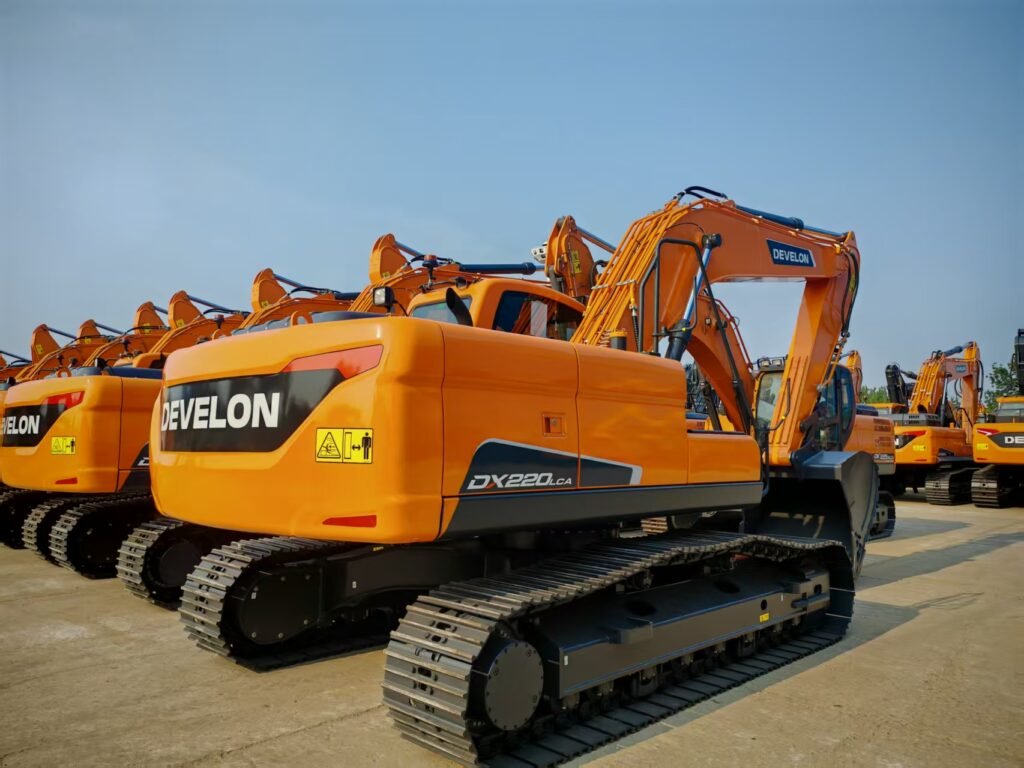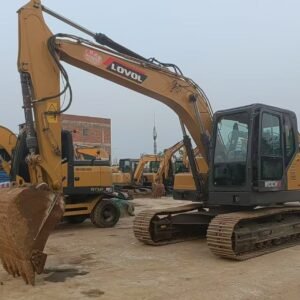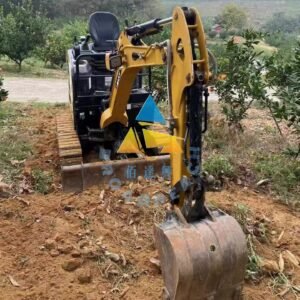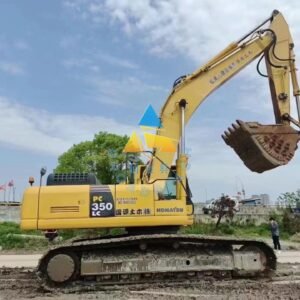BroadReach Construction Machinery Co., Ltd

Used Wheeled Excavator vs. Tracked Excavator: Which One Suits You?
If you are in the market for a used heavy-duty excavator, choosing between a wheeled excavator and a tracked excavator can make a big difference in job performance, maintenance costs, and overall productivity. While both machines are essential in construction, demolition, and site preparation, understanding their core differences will help you invest smarter—especially when buying a reliable used excavator for sale.
In this article, we break down the key advantages of each type of excavator in real-world applications. Whether you’re a contractor looking to expand your fleet or a business owner planning your first equipment purchase, here’s what you need to know.
Mobility and Terrain Versatility
One of the biggest differences between a used wheeled excavator and a used tracked excavator is how they move and perform on different types of terrain.
Wheeled Excavators are best suited for urban environments or jobsites with paved surfaces. Because they move on rubber tires, they are ideal for roadwork, parking lots, and city construction. Their mobility allows them to travel between locations without the need for a trailer, which can save time and reduce transport costs. If you’re often working in populated areas or on hard ground, a low-hour used wheeled excavator may be the better fit.
Tracked Excavators, also known as crawler excavators, excel on rough, uneven, or muddy terrain. Their steel tracks offer better stability and traction, especially in off-road or heavy-duty environments. If you’re operating in rural areas, doing land clearing, or dealing with soft soil, a durable used tracked excavator provides better performance and ground pressure distribution.
Pro Tip: Consider the type of terrain you face most often. Wheeled machines offer speed and flexibility, while tracked units bring superior grip and digging power.

Operating Costs and Maintenance
Choosing between a used rubber-tire excavator and a used crawler excavator also comes down to long-term operating costs.
Wheeled Excavators typically have lower ground impact and less wear on jobsite surfaces, which reduces repair needs on paved ground. They’re also easier on the undercarriage compared to tracked versions. On the flip side, tires may wear faster on rough terrain and need more frequent replacement if not used appropriately. If your projects require high mobility and short-distance travel, a cost-effective used wheeled excavator can lower your overall expenses.
Tracked Excavators usually have higher undercarriage maintenance costs, particularly if used on abrasive surfaces like concrete or asphalt. However, in muddy, wet, or steep terrain, tracked machines are far more durable and stable. That added traction often outweighs the added maintenance if you’re working in these types of environments regularly. A high-performance used tracked excavator for heavy-duty projects offers better value in the long run for demanding tasks.
Pro Tip: Evaluate the type of wear and tear your machine will face daily. Total cost of ownership includes tires or tracks, undercarriage repairs, and transport logistics.
Application and Jobsite Demands
The kind of work you do should ultimately guide your decision when buying a quality used excavator.
Wheeled Excavators are built for speed and flexibility. They’re ideal for utility work, roadside construction, and jobs that require frequent repositioning. The ability to quickly move around or between jobsites without needing a trailer makes them highly attractive for urban contractors. A well-maintained used wheeled excavator with low operating hours can be a smart choice for companies focused on time-sensitive projects.
Tracked Excavators are designed for power and endurance. They offer better lifting capacity and digging force, making them the go-to option for excavation, mining, forestry, and large-scale construction. If you need a machine that can handle tough environments and heavy materials, investing in a high-capacity used tracked excavator makes more sense.
Pro Tip: Define your core workload. If precision and speed are essential, wheeled is the way to go. If raw digging strength and stability matter more, tracked wins.
Final Thoughts: Which One Is Right for You
There’s no one-size-fits-all answer when choosing between a used wheeled excavator and a used tracked excavator. The decision depends on your operating conditions, job requirements, and long-term cost considerations.
- Choose a used wheeled excavator for sale if you need speed, urban mobility, and lower ground impact.
- Go with a used tracked excavator for rugged terrain if you need power, stability, and off-road performance.
In both cases, make sure to inspect the machine’s history, check operating hours, and verify maintenance records. A dependable second-hand excavator can save you thousands and boost your productivity when chosen wisely.
Looking for your next machine? Explore listings for low-hour used excavators near me, compare features, and get ready to dig into your next project with confidence.






